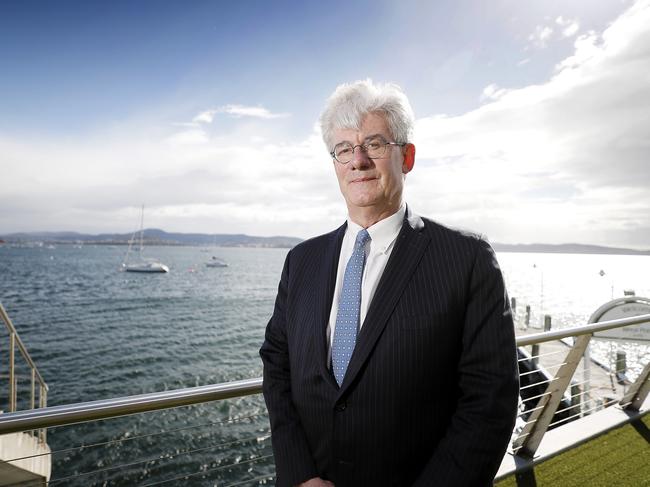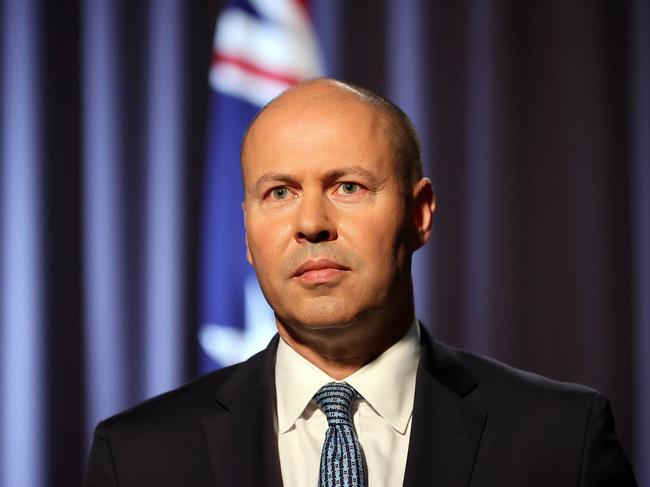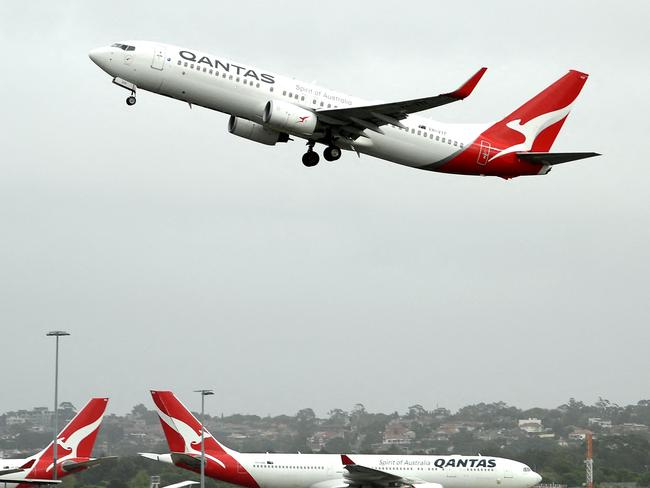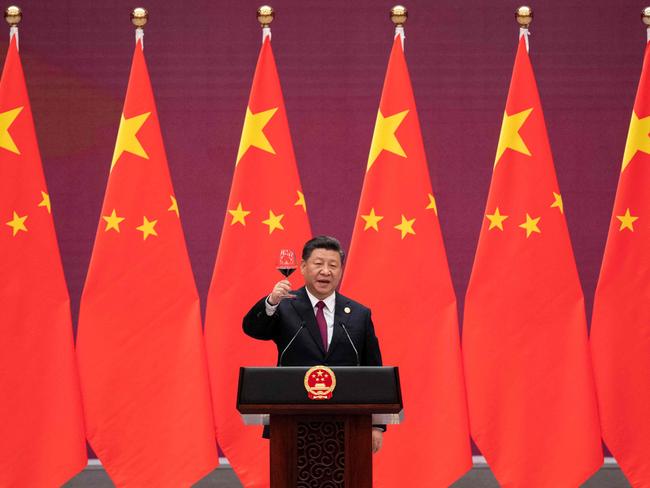Australian economy: Billions saved during the pandemic to be unleashed
The Morrison Government is set to get a much-needed economic boost in the lead-up to the May poll with billions in savings about to be discharged into the economy.
Federal Election
Don't miss out on the headlines from Federal Election. Followed categories will be added to My News.
Billions of dollars in pent-up savings will be unleashed into the economy in coming months, giving the Morrison Government a much-needed economic boost in the lead-up to the May poll.
But rising mortgage interest rates and long-awaited overseas holidays will see the economic bounce-back slow down by winter, providing headaches for whichever party wins the election.
Independent economist Saul Eslake said Australian households had accrued $1.23 trillion in savings deposits by the end of December, a rise of almost 25 per cent or $242 billion over the two-year period covering the Covid-19 pandemic.
Reserve Bank data showed total household debt had also risen 8.5 per cent, or $168 billion, between March 2020 and December 2021.
However, a rise in wealth had more than offset the increase in debt.

Mr Eslake said households had increased their wealth by a total of $2.7 trillion or 24 per cent over the same period, due to soaring house prices and rising values of superannuation and share portfolios.
“And that’s net wealth, so it’s net of the increase in debt that some people have taken on in order to buy houses and so forth,’ he said.
“There is a very substantial volume of additional savings that’s been socked away.’’
Mr Eslake said Australian households had “considerable capacity to spend in order to speed the recovery out of Covid.’’
Spending would increase as households emerged from the Omicron outbreak in December and January and began shopping, eating out, travelling domestically, and visiting entertainment venues, leading to improved GST returns.
The Reserve Bank was also indicating it would not raise rates during the election campaign, which would keep consumer confidence steady.

“Some of those numbers will obviously come out during the election campaign and the Government will no doubt point to those numbers as evidence as what they claim is their superior economic management,’’ Mr Eslake said.
“Whether that’s true or not is something people can argue about but no doubt the Government will welcome the sort of numbers that are likely to be coming out during March, April and May.’’
Mr Eslake said some money would be lost to the Australian economy when people began taking long-awaited international holidays as borders reopened, although incoming tourists would make up some of the shortfall.
He said the Australian economy had been buoyed for the past two years by people spending on home improvements, cosmetics and alcohol.
“I suspect when people are allowed to travel again they will reduce some of the spend they’ve been doing in and around their homes and spend it overseas again, so apart from whatever Qantas picks up on the way out, most of that spending will benefit Bali or Thailand or Fiji or wherever Australians choose to go.’’

Mr Eslake said overall, the federal and state governments had “more than fully compensated’’ the wages and other income losses people had suffered due to lockdowns through the various rebates and payments paid throughout the pandemic.
“One of the big reasons for the huge increase in cash deposits has been the amount of money governments have thrown at people during Covid and they fact they haven’t been able to spend it all,’’ he said.
Of the $242 billion squirrelled away, around $30 billion was money taken out of superannuation funds.
Mr Eslake said a spending-led recovery would be seen in the short term, and building and construction would perform strongly, despite labour and materials shortages.
“Up to six months I think all the signs are there should be quite a strong rebound.’’
However, the longer-term recovery path was not as clear.

Mr Eslake said global factors such as strong growth in China, rising global share and commodity prices, and falling world interest rates, had all benefited Australia’s economy over the last 20 years, but conditions were now changing.
“I suspect that none of those things are going to be as helpful beyond the next six months, on a three-year view, or … in the life of the parliament that we are going to elect in May.’’
Mr Eslake said China’s growth was slowing, our bilateral relationship with Beijing showed no signs of improvement, world interest rates were rising and prices for commodities such as iron ore and coal would likely go down.
“I not saying they’re going to fall off a cliff but they’ll be at a margin detracting from our national income rather than adding,’’ he said.
Mr Eslake said inflation was a potential short-term risk, making people fear a big interest rate rise, and forcing them to pay more for essentials such as petrol and good.
He said the only other thing that could potentially derail the economic recovery was the outbreak of another “scary variant’’ of Covid.
ANALYSIS: DANIEL PETRIE
Fund managers and research analysts love to use the term “money on the sidelines” during volatile stock market sessions or of course political shocks such as pandemics.
Throw in a Russian dictator, record flooding and near-term uncertainty and it provides the perfect conditions for one to save their money.
In fact, the Australian Prudential Regulatory Authority notes that savings held at banks from Australian households are a healthy $A1.24 trillion dollars, an increase of $A240 billion from March 2020.
A return to normal or for those who prefer, the “let’s all just calm down” line is the point where loosening the proverbial purse strings augurs well for the Australian economy.
However, moving money off the sidelines and observing the prevailing backdrop of the same economic uncertainty that spurred such a savings rush can also drain those same reserves.
In 2022, the playing field that is the national economy is now littered with bigger hurdles including an inflation jump, significantly higher housing costs and an economy that is going into 2022 minus the record level of government and central bank support of the previous two years.
Governments at state and federal level are more indebted than before meaning their own credit ratings will come into sharper focus for those agencies who regularly assess the Australian economy.
The federal budget on March 29 is ahead of the likely May election and is likely to focus heavily on which side can demonstrate the best frugal credentials.
Businesses too no longer have JobKeeper support and insolvencies will go up as bankruptcy protections have since been lifted.
A return to normal and cash splash may provide a near term boost for the national economy but it may also act as an essential buffer for those households trying to remain in the game.
Originally published as Australian economy: Billions saved during the pandemic to be unleashed



